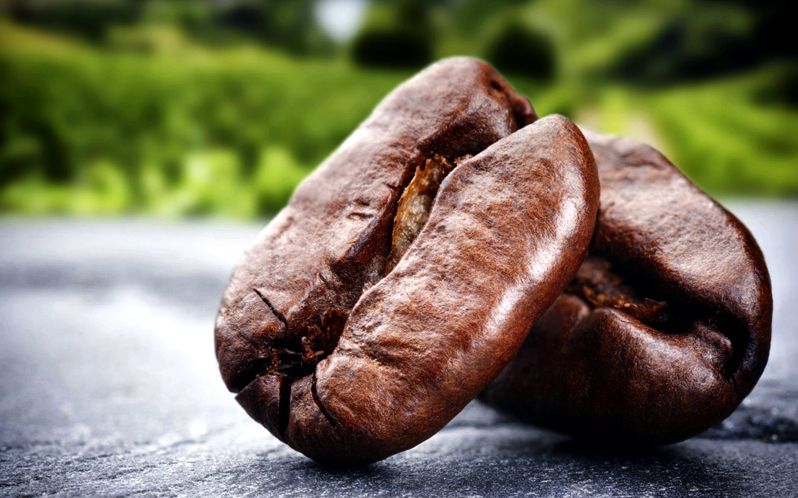
by guest blogger Sandy Riggen, who owns Brown & Jenkins Coffee Roasters
What’s the very first thought you think of upon seeing the term “organic?” Today’s savvy coffee enthusiasts (that might be you) will answer in symphony: pesticide free. Ah, but we realize that additionally you enjoy savoring a brand new mug of coffee while absorbing much deeper understanding about topics near to your heart and values. We feel organic coffee is simply one such subject, and there’s more into it than merely too little pesticides.
Maria Rodale continues to be consuming our organic coffees for a long time (her favorite is our Organic Peruvian). We’re quite honored with this, so we were delighted when she asked us to lead to her blog concerning the intricacies of organic coffee. So pour a brand new cup—we’re going to quench your thirst for knowledge…
Pesticides and Herbicides
Brown & Jenkins continues to be roasting coffee in Vermont in excess of 3 decades. We’ve learned a factor or more about coffee during this period, so we continue to find out more every single day. For example, are you aware that coffee plants are some of the most heavily pesticide- and herbicide-sprayed crops? But when you’re consuming nonorganic coffee while you look at this, don’t panic and throw it to waste. We’re not going to fill you with fear. A great deal of the substances put on coffee vegetation is destroyed throughout the roasting process. However, it is true that organic beans begin clean—and some coffee lovers can taste the main difference. Plus, a clear start without pesticides or herbicides within the mix certainly means more reassurance for you personally.
Other Chemicals, Too
Espresso beans are washed after harvesting. This sounds reasonable enough, however, many fliers and business cards use ammonia or swimming pool water in this process. As the beans are rinsed, some traces of those chemicals may remain. Should you drink city water, then chances are you consume more swimming pool water from the faucet than out of your coffee grounds. But when you’re trying for any swimming pool water-free lifestyle, stay with consuming organic coffee. Incidentally, try making coffee with canned, swimming pool water-free spring water. You’ll be amazed.
Swimming pool water is not the type of flavor you would like inside your cup—but if it is flavor you crave, we advise Organic A Healthier Lifestyle Blend. It’s couch potatoes and sweet, with notes of cinnamon and oak.
The Coffee Growers
There are many articles available about the advantages of organically produced coffee for that atmosphere, but we rarely learn about the direct advantages to coffee growers. We’re becoming more and more responsive to the job conditions in foreign countries. The finest impact of individuals pesticides and chemicals pointed out above is on individuals who grow and harvest the coffee: Their contact with these products utilized in the cultivation and processing of conventional coffees is way more than the exposure we might experience at our finish from the process, within our cups. Granted, measures to help keep coffee growers safe are more and more enforced, but it’s best to realize that when you buy organic coffee that you’re also encouraging healthier work environments for workers within the coffee industry.
Why It Isn’t Always More Costly
As you may imagine, organic coffee is more expensive per pound for roasting companies. This is also true for small, rural roasting facilities (for example Brown & Jenkins) that purchase their espresso beans in small, fresh batches. However, you might be surprised to understand that the amount of coffee lovers that like organic over conventional coffee is all about equal. By providing both varieties for their customers, many coffee roasters can find a contented medium and the purchasing experience simple by making use of exactly the same cost either to product. This is exactly what we call a person-friendly approach.
We raise our cup for you!
 Sandy Riggen continues to be who owns Brown & Jenkins Coffee Roasters in Vermont for ten years. The 3rd owner within the company’s 31 years, Sandy assists in keeping its strong traditions and standards for quality, freshly roasted coffee alive, roasting and shipping orders within 24 hours. She’s even the mother of 4 and grandmother to some growing flock of eight. An enthusiastic prepare and organic food activist, Sandy has developed in the food business the majority of her adult existence. Before purchasing Brown & Jenkins, she was who owns Country Fare Catering, which she operated for several years. Brown & Jenkins is a superb fit, and given her passion for great food and occasional, she is constantly on the talk and talk about new ways to combine cooking with coffee on her behalf blog.
Sandy Riggen continues to be who owns Brown & Jenkins Coffee Roasters in Vermont for ten years. The 3rd owner within the company’s 31 years, Sandy assists in keeping its strong traditions and standards for quality, freshly roasted coffee alive, roasting and shipping orders within 24 hours. She’s even the mother of 4 and grandmother to some growing flock of eight. An enthusiastic prepare and organic food activist, Sandy has developed in the food business the majority of her adult existence. Before purchasing Brown & Jenkins, she was who owns Country Fare Catering, which she operated for several years. Brown & Jenkins is a superb fit, and given her passion for great food and occasional, she is constantly on the talk and talk about new ways to combine cooking with coffee on her behalf blog.
 Print
Print  PDF
PDF Follow
Follow

Related Posts:
- The Organic Label Needs Your Help
- I Personally Don’t Like Granola
- A Natural Pumpkin Spice Latte with Pumpkin Seed Protein
Resourse: http://mariasfarmcountrykitchen.com/organic-coffee/
What you didn't know about coffee: Asher Yaron at TEDxUbud
Video COMMENTS:
Rick Cyclist: What a bunch of wank – this is a blatant infomercial and discredits the free sharing of information and insight that Tedx puports to be. He is using classic charlatan techniques to distort coffee roasting facts in order to further his personal marketing agenda. A good roaster will use as much convection heat as possible in order to prevent the surface of the bean becoming traumatised by the extreme heat of the steel drum. The beans must be cooled within a couple of minutes after the roast or they will continue cook inside, producing a 'baked' flavour in the cup. Espresso roasts need at least 7 days to de-gas (CO2) before settling down before they can be extracted properly. The gas will otherwise interfere with the water's ability to act a solvent on it. I could go on but people like this guy just piss me off. Maybe he believes what he's saying but only because his arrogance is blinding his judgment. I would happily present one of my roasts against his in a blind tasting test, broadcast on Youtube for all to see. Got that, buddy? Care to take me up?
Wutzthedeal: TedTalks needs to raise the bar for presentations; seriously. I'm watching it slip away.
zapfanzapfan: Preacher with no supporting data who wants you to buy something…
SuperMobian: this is just a long commercial for his roasting machine. ted is going down the drain.
manictiger: Maybe I'm just too entrepreneurial, but I don't see the big deal.\nHe didn't force us to buy the thing and he got me to research something I would have never even thought to research.\n\nActually, it's one of the more useful talks I've come across.\nI won't name and shame, but there are worse talks on this channel.\n\nI guess I'm 'the 1%', though, and I don't understand the trials and tribulations of 1st world people who watch free YT videos.
Neil McMahon: A TED talker with a vested interest in what they are talking about, who manipulates information labelled as "research" for their own financial gain. Just watched an 11 minute infomercial How sad.
richard gould: is this a sales pitch?
el Padresuerte: wow. I work in coffee, am actually a coffee producer, cupper, exporter, importer, roaster ocasionally… I have two things to say about this:\n\n1) coffee is alive before you roast it, and DIES WHEN YOU ROAST IT. its basic biology, living beings have a temperature range at which they can survive. His concept is backwards. It is because THE COFFEE JUST DIED that the shelf life is not more than a week (for totally fresh and best results… this I agree with).\n\n2) Not just anyone can roast coffee. the machine he built means nothing without GOOD COFFEE. there are ways of grading coffe and certain altitudes and climates certainly yield better or worse coffees. You cannot ever claim that all coffee is the same, and actually you cannot keep the coffee for years as long as you don't roast it like he says. Within grading INTERNATIONAL STANDARDS you can taste when coffee is old, and that happens at around 6-12 months. This is greatly affected by packaging method, and contrary to his explanations… it does work. both on the pre roast coffee, and the roasted coffee. he is assuming that the coffee is as good if you leave it outside of a container as well as it would be if it was inside the container. totally false. the fridge thing is true, better out than in…\n\nI guess its more than 2 things…\n\nalso TED come on. this is a cheap infomercial with shady logic and data… who approves this?
Pibbles 'n Bits: Looked like this guy made this video to market his product….lame.
jayaybe1: So TEDx is just a marketing tool now? An infomercial? Fucking garbage!